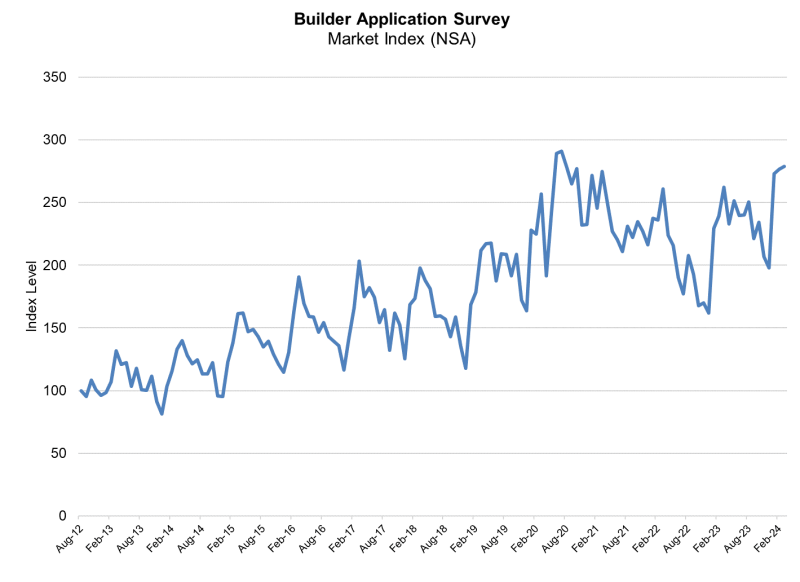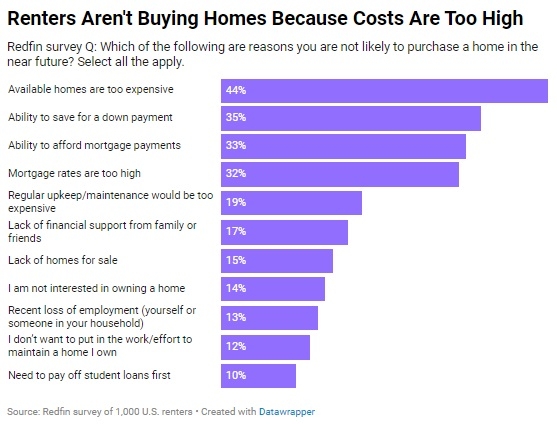Advertisement
InterFirst gauges broker satisfaction with pleasing results
Buying a foreclosure property below market value - Five tips from the prosJim SaccacioForeclosure, RealtyTrac, Investment
House hunting can be a very daunting experience, especially in
today's real estate market. Both investors and homebuyers have been
priced out of the market by escalating costs, and good real estate
deals are increasingly difficult to find. However, there are
bargains out there for those who know where to look. For people
willing to do some homework, the foreclosure market offers some of
the best opportunities in real estate today.
Web-based services such as RealtyTrac give consumers
access to foreclosure and pre-foreclosure information that was
previously available only to professional real estate brokers and
investors. Today, homebuyers can use these services to assist them
in identifying and researching potential home purchases, as well as
the tools and professional resources they need to help them close
the deal.
With interest rates increasing and ARMs adjusting upward,
experts predict an increase in the number of foreclosure properties
on the market. RealtyTrac, which provides all of the foreclosure
data for both MSN House and
Home and Yahoo! Real
Estate, has already compiled a list of more than 550,000
foreclosure properties across the country.
Foreclosure properties can be a terrific investment. They can
also give homebuyers a much more affordable option than traditional
properties. However, they're not a way to get rich quick, and a
foreclosure purchase needs to be approached in an educated,
intelligent manner. Here are five tips to help you close a deal on
a foreclosure property:
1. Learn about the foreclosure process and different
types of foreclosure properties.
There are three basic types of foreclosure properties, representing
different stages in the foreclosure process: notice-of-default
(NOD) and notice of trustee sale (NTS), which are both
pre-foreclosure properties; and real estate-owned (REO), a
foreclosure property that has been re-purchased by the bank.
For most consumers, buying a pre-foreclosure property from a
private homeowner is the best option. It's important that the buyer
and seller see the situation as a win-win situation in order to
ensure a smooth process. In this case, the seller is able to get
out from under a mortgage without destroying their credit rating,
the lender is saved the time and expense of foreclosing on the
property, and the buyer receives a below-market price on a
home.
Foreclosure auction sales are typically the domain of the
professional investor. These properties are formally in default and
sold to the highest bidder at an auction. Buyers are required to be
physically present at the auction and must pay 100 percent of the
sale price in cash on the spot. Though foreclosure auctions can
offer significant savings, they are not for the feint of heart or
uninformed. Unless the buyer is already familiar with a particular
property, there is usually little time to examine it. And the buyer
will be competing against professional investorsand sometimes even
the lenderat the auction.
Once the lender officially reclaims a home, it becomes a real
estate-owned property. While REO properties typically offer more
time for evaluation and a more standard bank-managed transaction,
their prices are usually very close to full retail market
value.
2. Secure financing early
It's important for a buyer to be pre-qualified before engaging in
discussions with a seller. This ensures that the buyer is in a
financial position to purchase the property, and is in the
strongest possible position to negotiate. It's best to work with a
lender who understands the foreclosure process and can guide the
buyer through certain steps, such as ensuring that a property is
FHA-compliant. Another reason to consider pre-qualification is that
not all lenders finance foreclosure properties. Having approved
financing in-hand makes negotiations with the seller and lender
easier, and may even make it possible for the buyer to simply cure
the default and take over the existing loan to reduce loan
processing fees.
3. Engage a real estate agent as a "buyer's
representative"
Most people hire a real estate agent to sell their home. These
"sellers representatives" are charged with making the sale and
negotiating the best deal for their clients. A "buyer's
representative" has the homebuyer's interests at heart, and are
charged with finding the right property and negotiating the best
price for their clients. Picking the right real estate agent will
make a buyer's life much easier. There are agents who specialize in
the foreclosure market, with specific experience in REO properties.
Look for an agent with foreclosure transaction experience, as well
as knowledge of local, regional and state laws. But it's also
important to consider the agent's knowledge of the area, their
ability to close a deal, and their access to other professionals
(attorneys, lenders, mortgage and title professionals) to ensure
that the buyer is in good hands.
4. Do your homework
Stocks offer higher potential returns for investors than
traditional savings programs, but they are also riskier. Similarly,
foreclosure properties are somewhat more risky than traditional
real estate properties, but they offer much higher potential
savings. With the right examination and due diligence, buyers can
significantly reduce the risks. It makes sense to give any property
under consideration a thorough examination. Here are eight steps
for doing a professional-level exam.
*Identify desirable neighborhoods. Identify
specific neighborhoods where you'd like to live or own a home. This
will limit your search to a manageable size for you and your real
estate agent, and give you a sense of relative property
values.
*Cast a wide net. There are a number of Web-based
services that can put hundreds of thousands of foreclosure
properties at your fingertips. Since the best savings are often
found in pre-foreclosure properties, it's important to check the
percentage of pre-foreclosure (versus REO) properties in any
database before subscribing.
*Determine the property value. Look at the
original purchase price and recent comparable property sales to
determine the current value of the property.
*Verify the amount in default and remaining loan
balance. In order to determine a reasonable offer price,
you'll need to know, at a minimum, how much money it will take just
to satisfy the debt to the lender.
*Run a legal investing report. Before purchasing
any foreclosure property, make sure it is free and clear of any
bankruptcies, tax liens or other financial liabilities.
*Assess the condition of the property. If at all
possible, visit the property, ask your real estate agent's opinion,
and review pest and structural reports to make sure that the
property is in acceptable condition, or to determine how much of a
rehab budget youll need to build in to your deal.
*Build a positive relationship with the seller.
Before purchasing the property, try to make sure that you're
entering into a win-win situation with the seller, so that they'll
do what they can to make the process easier and leave the property
in good condition.
*:Leverage your timing. Knowing when a property is
going to be auctioned gives you an extra bargaining chip when
negotiating with the seller or the lender.
5. Make a realistic offer Despite what you may
see on late-night cable TV, investing in foreclosure properties
isn't a sure-fire "get rich quick" formula. Lenders aren't likely
to give properties away, particularly in a real estate market where
prices continue to rise. And homeowners in financial distress may
be difficult to deal with, particularly early in the foreclosure
process. The keys to a successful foreclosure property purchase are
diligence and patience.
As a rule of thumb, the best savings can be made at the
pre-foreclosure stage, where home owners can avoid a foreclosure
and lenders can save the time and cost involved in going through
the process. Another critical point in the process is immediately
prior to the auction date, when all parties might be most open to a
last-minute solution. It's not unusual to save from 10-30 percent
of the market value on a foreclosure property, and certain
properties offer savings of 50 percent or even more. An educated
buyer one who knows how much is owed on the property and what the
market value is can usually come up with a realistic offer, one
that offers significant savings while meeting the requirements of
the lender.
Now go out and familiarize yourself with the resources and tools
available to take advantage of this formerly hidden real estate
market. With the experts pointing toward significant growth in
available foreclosure properties, there's never been a better time
to line up your resources and become informed.
Jim Saccacio is chief executive officer of RealtyTrac. He
may be reached at (949) 305-0800 or e-mail [email protected].
About the author





